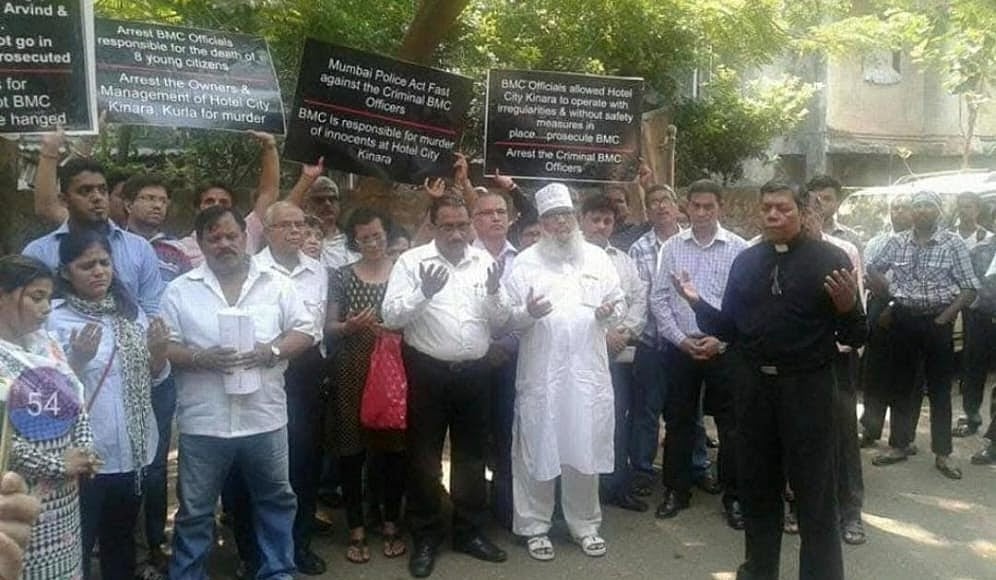Mumbai: One of the biggest mosques in central Mumbai, the Bilal mosque on Grant Road (Maulana Shaukat Ali Marg) plans to install a solar power generation system to reduce its electricity bills.
The Sunni Masjid E Bilal mosque, built in 1910 and later expanded, is an important community centre, with a religious school and welfare facilities serving the neighborhood. The mosque also had a burial ground called Chhota Qabristan that is no longer used for fresh burials.
Aslam Lakha, a mosque trustee, said that they are in the process of raising funds for the project. While the project's technical details are still to be worked out, the mosque estimates that the project could cost between Rs 23-24 Lakhs. "We have received two quotations and we are in the process of studying the proposals," said a mosque manager.
.jpg)
Bilal mosque At Grant Road | Photo credit: Manoj Ramakrishnan
The mosque covers an area of over 6000 square feet, with the Haram - the central enclosure spread over 2000 square feet. On Friday, the main day of prayers, 6000 to 7000 people offer prayers in two Jamaat or batches. "We air-conditioned the main prayer hall and the electricity costs go up to Rs 2,50,000 a month during summer. Our mosque is run through donations and the electricity costs have risen substantially due to the addition of air-conditioning. Solar power will reduce some of the cost," said Abdul Rahim, another trustee.
The mosque is selling coupons worth Rs 1000 to raise funds. "We have not worked out the technical details. However, we hope to meet the electricity needs of the prayer hall through the solar power generation system. We will still need to use the grid for the rest of the mosque premises," said Rahim.

As more mosques add air-conditioning they are looking at solar power to reduce their electricity bills. Minara Masjid on Mohammad Ali Road, Hakim Dayam Masjid near Sir J J Hospital, and Zakaria Masjid are among the mosques that have installed solar power panels on their roofs. An average air-conditioned home with two bedrooms needs 10 to 12 units of electricity per day. A 25-kilowatt system can generate around 100 units daily.
.jpg?width=1200)








